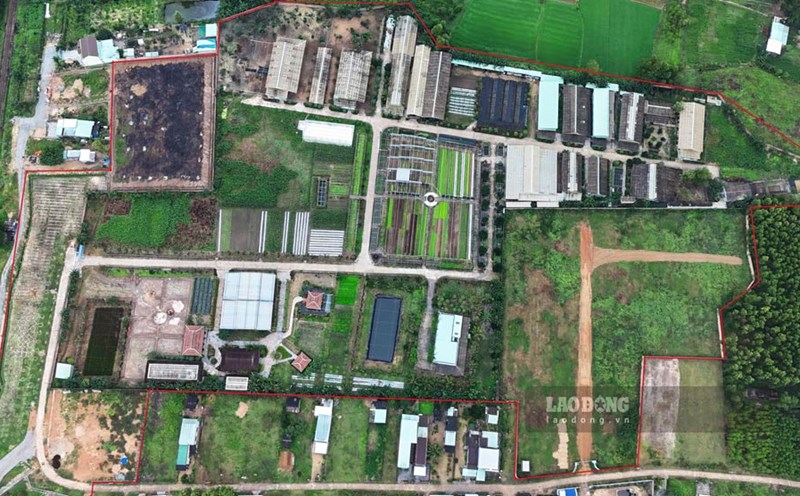The standards are complete but consumers still have to eat dirty vegetables
On September 24, at the seminar "Blowing up the holes in dirty vegetables in schools and supermarkets" organized by Dan Viet Newspaper, experts pointed out many loopholes in granting VietGAP certificates that make dirty vegetables still available for mixing into supermarkets and schools.
Ms. Tran Thi Dung - Vice President of the Vietnam Consumer Protection Association - expressed her question: "Why is the regulation on the production chain from cultivation to processing and putting into schools and supermarkets complete, but why is there still a loophole? This proves that although there are regulations, the management organization according to regulations is still disjointed. The current situation is that consumers are not only children but we all eat dirty vegetables because even in supermarkets, there is a quantity of vegetables of unknown origin that also leak in".

Meanwhile, Mr. Nguyen Thanh Trung - Deputy Head of the Department of Quality and Market Development (Hanoi Department of Agriculture and Environment) - said that the agricultural sector has in recent years issued many drastic instructions on food safety management. Currently, the agricultural sector is implementing a traceability system, but we are using static traceability stamps.
"To implement the standard, we must use a daily traceability stamp. However, this is facing many difficulties because infrastructure and software require large investments. Meanwhile, the new static recovery is done at the initial stage".
In Vietnam, there are many organizations that certify independent activities, helping management agencies inspect and evaluate the application of agricultural production standards. On the side of the certified company, Ms. Dang Thi Huong - Brand Director of Vinacert Certification and Appraisal Joint Stock Company - admitted that the current regulation, which only conducts inspections once a year after being granted a certificate, is a big loophole that makes it easy for businesses to do fraud.
"supervision can be conducted periodically or suddenly, depending on the level of risk and the nature of the business's operations. Some facilities can be inspected every 6 months, 9 months or 3 months, but the common is still 12 months/time. This creates a problem. If only inspected after 12 months, it will be difficult to ensure the process of maintaining product quality and safety. Many times the certificate only reflects at the time of issuance, and cannot ensure quality throughout the year," said Ms. Huong.
Need to build a strong chain of links
Mr. Hoang Van Tham - Representative of Chuc Son Clean Fruit and Vegetable Cooperative - said that building a chain of links and traceability is a loophole in management. This unit was a pioneer in applying traceability stamps according to Japanese technology, which were updated daily. However, due to high costs making it difficult for the product to compete, the cooperative has stopped cooperating with the supermarket.
It is necessary to change the awareness of entities in the chain of linkages; ensure equality in quantity and products. We hope that State agencies will soon intervene with a monitoring software system, creating a basis for the traceability to be truly effective, Mr. Tham proposed.

Faced with the "loophole" in granting certificates and tracing the origin, Mr. Ta Van Tuong - Deputy Director of the Hanoi Department of Agriculture and Environment - expects management work to be strengthened, especially with the current 2-level government model.
"I think to remove difficulties, we must change management methods to be tighter, and organize from pre-inspection to post-inspection. In parallel with the self-declared standards of the enterprise, there will be a post-inspection. When it is announced, people will be very interested, when products are circulating on the market, they just need to control whether the products are as advertised or not, helping businesses do business honestly to have a foothold in the market. When changing the method like that, businesses are very worried about being discovered to have violations," said Mr. Tuong.
In addition, according to a representative from Vinacert Certification and Appraisal Joint Stock Company, in the coming time, it is necessary to increase training and raise awareness for the producer. The awareness of businesses and farmers is a key factor to ensure food safety. The state should support training, consultation, and guidance for production facilities, schools, and units to know how to identify and monitor them.










